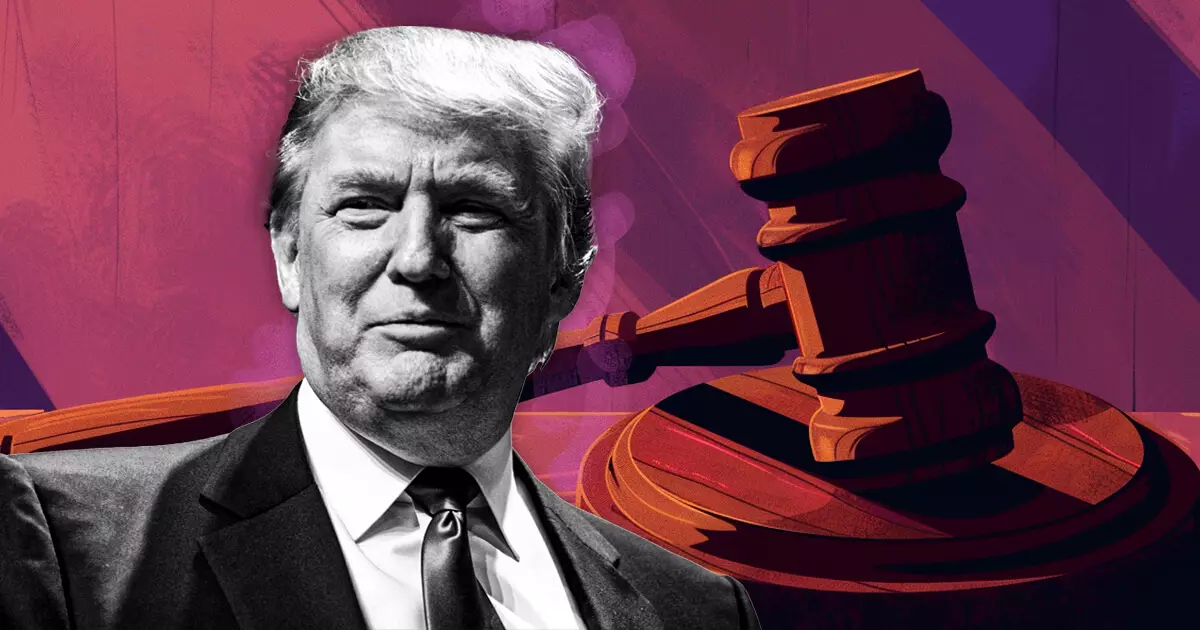In an era where cryptocurrencies and decentralized finance (DeFi) are gaining prominence, the regulatory climate surrounding these innovations remains fraught with complexities. Recently, the project spearheaded by former President Donald Trump, World Liberty Financial, has come under significant scrutiny from regulatory bodies, primarily the Securities and Exchange Commission (SEC). SEC Commissioner Mark Uyeda emphasized in a recent discussion that World Liberty Financial will not be exempt from the rigorous and often ambiguous regulations that govern U.S.-based crypto projects. This situation adds another layer of challenges for Trump’s venture, steering the conversation toward critical questions about the future of crypto regulation and its impact on innovation.
The SEC is designed to act as a disclosure-oriented regulator, not a merit-based one. Uyeda highlighted this point during an interview, asserting that the SEC does not evaluate the merits or potential risks of each project individually. Instead, the focus is primarily on ensuring transparency and proper disclosures by firms operating within the cryptocurrency space. This clarification indicates that World Liberty Financial will have to adhere to the same stringent criteria that have consistently affected other cryptocurrency initiatives in the U.S. Despite Trump’s high-profile involvement, there is no indication that his project will receive preferential treatment. In fact, Uyeda warned that the scrutiny applied to World Liberty Financial could be even more intense due to its high visibility and political connections.
The current political landscape adds an additional layer of complexity to the regulatory challenges facing World Liberty Financial. Speculation suggests that the Democratic party may leverage Trump’s involvement to advocate for a more aggressive crackdown on his project. The increasing polarization around cryptocurrency regulation raises the question of whether political affiliations may influence regulatory decisions in ways that could hinder innovation. Uyeda’s comments highlight the need for project leaders to be vigilant and prepared, urging Trump’s legal advisors to equip themselves adequately to navigate this convoluted regulatory atmosphere.
Investor skepticism surrounding World Liberty Financial cannot be overlooked. The ambiguous regulatory framework creates anxiety among potential investors who may question the viability of the project in such a turbulent environment. Trump claims that this initiative will bolster the United States’ position as a leader in the global cryptocurrency arena; however, success appears contingent on how effective regulatory bodies can provide clarity in their guidance. Without a clear understanding of what is required for compliance, it may be challenging for World Liberty Financial to gain the trust and support of investors.
The SEC’s current approach to cryptocurrency has garnered criticism from within the industry, with calls for a more transparent regulatory framework reaching a crescendo. Commissioner Hester Peirce has described the existing climate as “toxic,” suggesting that the lack of clear guidelines could stifle U.S. innovation in the crypto space. Lawmakers are increasingly advocating for the establishment of a joint advisory body dedicated to creating coherent regulations, a step that many believe is essential for fostering innovation while ensuring investor protection.
Looking forward, it remains to be seen how World Liberty Financial will maneuver through the intimidating landscape of U.S. crypto regulations. While there is considerable potential for growth within the digital asset market, the ambiguity surrounding compliance and disclosure requirements poses significant obstacles. Ultimately, Trump’s venture will need to prioritize transparency and legal readiness to navigate the challenges posed by the SEC and other regulatory agencies. As lawmakers debate the necessity for clearer frameworks, the future of World Liberty Financial and its role in the evolving cryptocurrency market hangs in the balance, dependent on how effectively it can adapt to these stringent regulatory demands.
As the crypto industry continues to evolve, it is crucial that clear and systematic guidelines be established. The intersection of politics and regulation will play a key role in shaping the future landscape for digital assets in the U.S., and projects like World Liberty Financial will be tested every step of the way.

